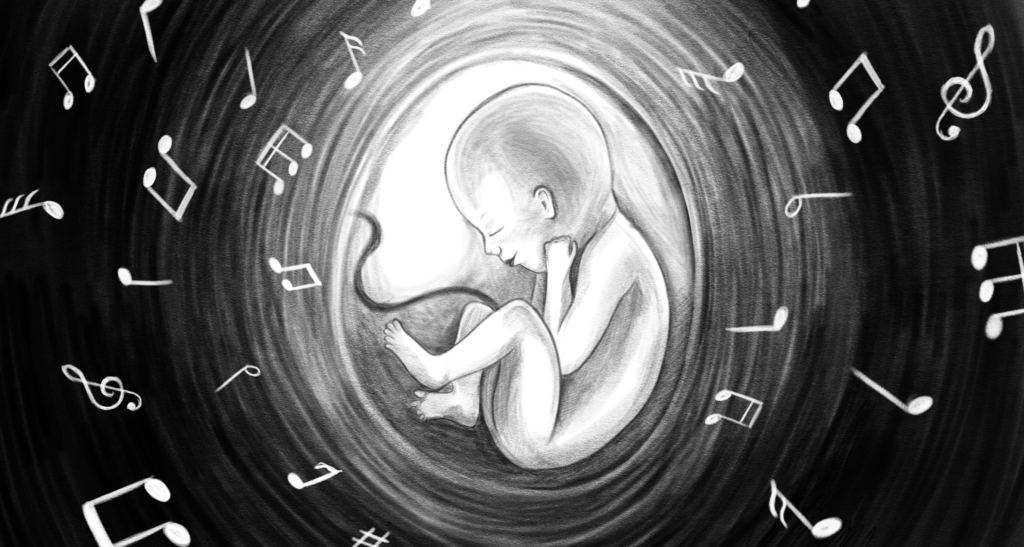Was Jesus political? If so, how did his politics begin and grow? Was political consciousness an insignificant add-on in Jesus’s later life, or was it formed into Jesus from his origins?
In this opening essay, I argue that Jesus’s life was political from the beginning and that we can discover the roots of his radical politics in the most obvious but overlooked place: with his young mother Mary and her songs. And this beginning had profound implications for who Jesus would become and how his political vision would unfold later in his public career, as we will see in the weeks to come.
Like many of us, Jesus grew up listening to his mother sing. One of the earliest details that Luke mentions in his biography of Jesus is that Mary sang when she first learned that she was pregnant with the Messiah. According to Luke, her song went like this:
My soul glorifies the Lord
and my spirit rejoices in God my Savior,
for he has been mindful of the humble state of his servant…
He has performed mighty deeds with his arm;
He has scattered those who are proud in their inmost thoughts.
He has brought down rulers from their thrones but has lifted up the humble.
He has filled the hungry with good things
But has sent the rich away empty.(Luke 1:46-47, 51-53)
This was a political song. Under the colonial rule of the Roman Empire, it was the magnificent anthem of a radical young woman who ached for a new order in which the dominated would be liberated and the oppressors would be thrown down. It was the song of a poor woman who hoped for a fundamental change in the economic system of her society that filled her body with hunger. And for Mary, the promise of this divine change was now growing in her womb.
Annie Murphy Paul discovered that babies begin to learn long before they are born. In her brilliant TedTalk “What We Learn Before We’re Born,” Paul says,
Some of the most important learning we ever do happens before we’re born while we’re still in the womb. Fetal origins is a scientific discipline…based on the theory that our health and wellbeing throughout our lives is crucially affected by the nine months we spend in the womb… We’re all learning about the world even before we enter it. When we hold our babies for the first time, we might imagine that they’re clean slates unmarked by life, when in fact they have already been shaped by us and the particular world we live in… First of all, they learn the sound of their mothers’ voices.
Paul’s research makes intuitive sense. Babies in the womb are with their mothers 24 hours a day, seven days a week. Around the fourth month, they start hearing everything their mothers say as their voices vibrate through their bodies into the womb. In fact, Paul shows that newborn babies already recognize their mothers’ voices and choose them over the voices of female strangers. In short, rather than blank slates, children are born already knowing and loving their mothers through the sound of their voice.
If we want to understand the politics of Jesus, then, we need to begin before Jesus was born with his “fetal origins” and the context that shaped him.
This insight is so simple that it has been overlooked for nearly 2,000 years of Christian theology, especially in its representation of a placid Mary with a halo around her head. Jesus was the son of Mary. Mary was a woman who sang. Mary’s songs vibrated in her womb as she carried Jesus for nine months and throughout his childhood. And based on Luke’s introduction, Mary’s songs of reversal were intensely political, shaping Jesus’s life and longings before he even entered the world with lyrics like, “He has brought down rulers from their thrones but has lifted up the humble… He has filled the hungry with good things but has sent the rich away empty.”
Years later, we can hear distinct echoes of Mary’s singing in Jesus’s first public speech, itself a declaration of radical reversal:
“Blessed are you who are poor, for yours is the kingdom of God.
Blessed are you who hunger now, for you will be satisfied.
Blessed are you who weep now, for you will laugh…
But woe to you who are rich, for you have already received your comfort.
Woe to you who are well fed now, for you will go hungry.
Woe to you who laugh now, for you will mourn and weep.”(Luke 6:20-26)
So the politics of Jesus begins with a young mother, her acute consciousness of oppression under Roman occupation, and her radical songs of freedom. When Jesus came into the world, he wasn’t a neutral newborn. Jesus came into first century Palestine with a prenatal political ethos of resistance and reversal aspiring for a new political and economic order. Applying Paul’s research, we can assume that this is what Jesus knew and loved in the voice of his mother before he knew anything else.
Of course, Jesus’s motherly education didn’t end outside the womb. Day after day for several years, Mary held Jesus close to her body, rocking him and feeding him from her breast, as she sang her songs of protest. We know from a mountain of scientific research that these years of intimate contact between mother and child are crucial for our formation. This, then, is how and when Jesus became Jesus in the shadow of Rome’s imperial power.
And what Luke shows us is that Mary was not just any “mother,” empty and abstract, as no mother is. Mary was a passionate woman whose young heart pulsed with God’s will for economic justice and political freedom for the oppressed on earth. Mary’s magnificent song was no sleepy lullaby but a protest song of political theology born from her raw experience of colonial occupation, poverty, humiliation, and the hope for a new political order from God.

Mary’s movement, the vibration of her voice, her sweat and milk, the passionate words that poured from her heart through her lips in song – these were Jesus’s first sources, his formative influences, his political prehistory. Strikingly, the Gospels tell us almost nothing about Joseph other than that he was a poor carpenter, perhaps even a day laborer. Indeed, scholars question whether Joseph disappeared or simply died, since he plays virtually no role in Jesus’s story, which may have contributed to the rabbinic tradition that Jesus was an illegitimate child (see John 8:41).
Quite literally, then, Jesus was a “mama’s boy” (see Mark 6:3). Mary carried Jesus, sang to Jesus, gave birth to Jesus, and fed and formed Jesus. Many years later, we know that Mary partied with Jesus at rural weddings (John 2:1-12), went on the road with Jesus as he ministered, and stood near to Jesus as he was brutally executed as an enemy of the state and religious heretic (John 19:27). Unsurprisingly, after Jesus’s resurrection, Luke tells us that “Mary the mother of Jesus” was there when her son’s movement launched in Jerusalem (Acts 1:14).
So, his mother’s singing was the beginning of Jesus’s political consciousness. Before he was even born, a radical passion for freedom and justice was nourishing and nurturing Jesus through the spiritual placenta of Mary’s voice as it vibrated in her womb to her son. The songs that Jesus likely grew up singing were songs of political and economic reversal, songs about God subverting powerful rulers and feeding the hungry.
Jesus wasn’t a blank slate and politics wasn’t foreign to his formation. Political consciousness was woven into Jesus from the very beginning. And Mary’s politics centered on God’s will to reverse systems that impoverish and oppress the powerless.
Stop & Think: Questions to Wrestle With
- Have you ever thought about Mary as political and how she shaped the political consciousness of her son?
- How does Mary’s song of political and economic reversal make you feel? Do you find it threatening, inspiring, or something else?
- Does God still will to overturn structures of power and wealth for the sake of the oppressed and poor? Should Mary’s politics influence Christian political imagination today?
***
“The natural unselfishness of a good mother is something magnificent.”
Dietrich Bonhoeffer in a letter from prison to Eberhard Bethge on March 25, 1944




